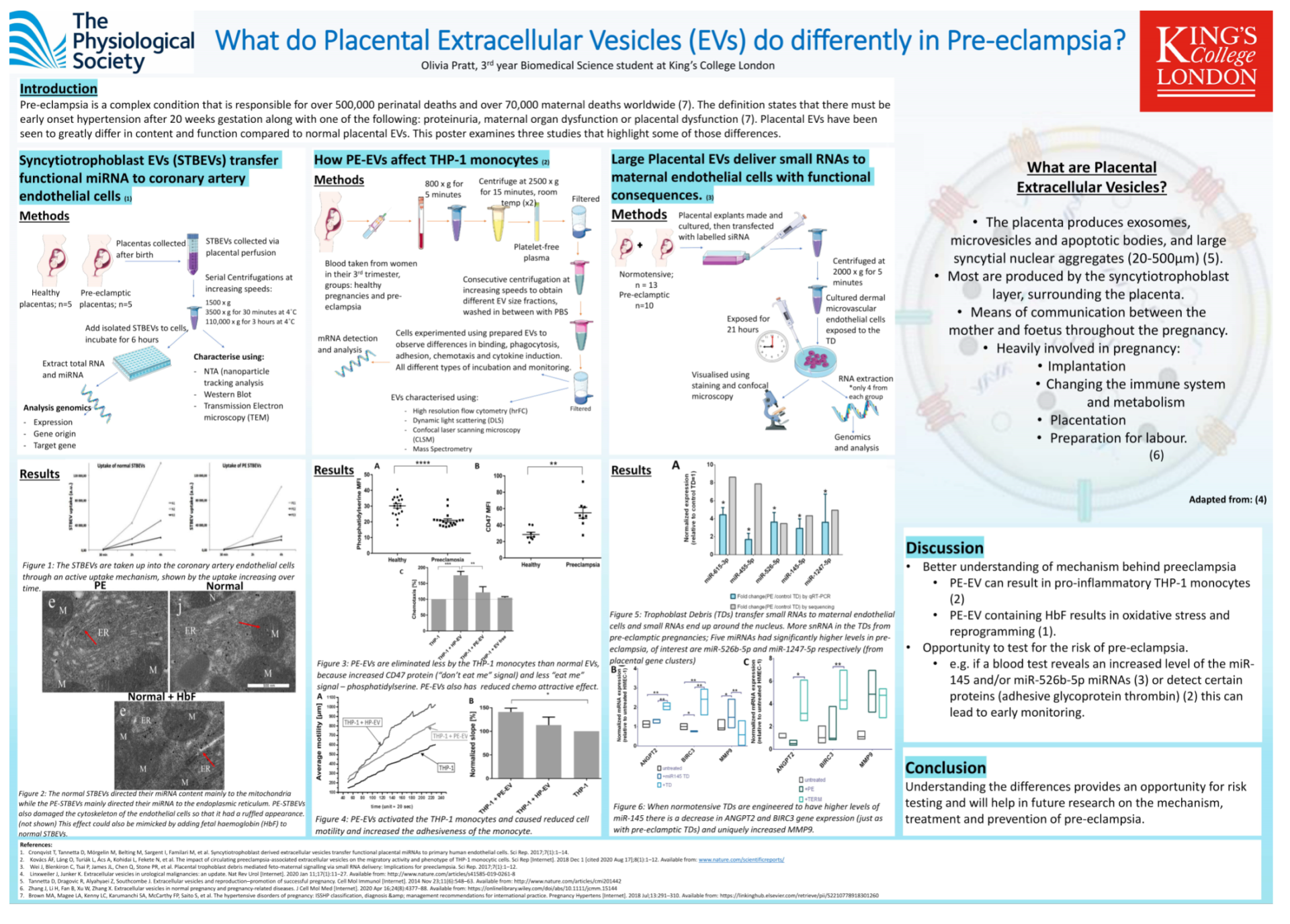By Olivia Pratt, King’s College London, UK
Due to the COVID-19 pandemic, my Physiological Society Undergraduate Summer Studentship project had to be amended from an experimental lab project designed to investigate whether different bacterial populations can influence extracellular vesicle (EV) production from the cells lining the vagina.
This remote project had three parts to it. The first part was to write a project proposal for the experiment. This consisted of a mini literature review of extracellular vesicles (EVs) and their function in pregnancy, for the introduction. EVs have many roles in pregnancy which include being involved with implantation, placentation, and labour. One of the major functions of placental EVs in pregnancy is to adapt the maternal immune system so that it tolerates the growing foetus. However, in pre-eclampsia, placental EVs can cause adverse adaptions leading to a more pro-inflammatory state.
This leads onto the second part of the remote project, which was to make a review poster about how placental EVs work differently in pre-eclamptic pregnancies compared to normal, healthy pregnancies. Three recent papers were reviewed in the poster, which showed that pre-eclamptic EVs damaged maternal endothelial cells and activated monocytes, meaning they had a pro-inflammatory phenotype. EVs can also transfer functional miRNAs and other small non-coding RNAs to maternal cells. Since the composition of the RNAs changes in pre-eclamptic pregnancies, this could be a mechanism behind some of the complications associated with pre-eclampsia.

The last part of the remote project was to design an activity that can be used to teach the public about EVs. This was a useful way to consolidate my understanding of EVs and explore different ways of communicating science to the public. The single activity turned into a pack of different activities ranging from outdoor/indoor games, stories and crafts, to baking and modelling.
Thought this project, my appreciation for making the research understandable to non-scientific audiences has grown. I find that not only does this make the research more accessible, it also helps the researcher understand their research better. I also found that even though I couldn’t complete the wet lab experience, I still gained a clear understanding of how the experiment would have been carried out, by explaining the methods that we would have used.
I would like to stay in women and children’s health research looking at pregnancy complications such as pre-term birth, and the possible ways we could detect and prevent spontaneous pre-term birth. I am also very interested in researching fetal programming, particular after pregnancy complications. I would also like to be able to do outreach to raise awareness and understanding about women and children’s health.
Olivia Pratt, King’s College London, did her Physiological Society summer studentship in the Department of Women and Children’s Health under supervision of Dr. Holly Jenkins and Professor Rachel Tribe. Read more about our Undergraduate Summer Studentship Scheme which will open for applications in a few weeks, and will close 28 February 2021.
Please note that all views expressed on The Physiological Society’s blog reflect those of the author(s) and not of The Society.
